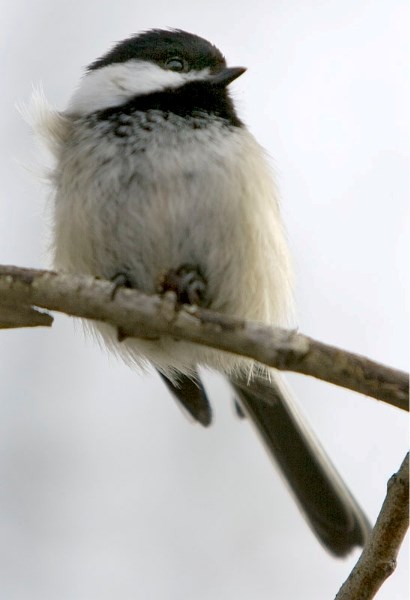St. Albert shoppers might want to pull on a sweater Thursday when a local store turns down the heat as part of a national push to fight climate change.
Staff at the St. Albert Superstore will be taking part in National Sweater Day on Feb 17. The event is organized by the World Wildlife Fund (WWF) and sponsored by Loblaw Companies Ltd., which owns the Superstore chain.
This is the event’s second year, says WWF climate policy analyst ZoĂ« Caron, and the first where it’s been promoted nationally. It challenges people to show their commitment to fighting climate change by turning down their thermostats by three degrees for one day.
Participants are also encouraged to wear funky sweaters. Caron says she already has hers picked out. “If you could have a Danish muumuu, that’s what this would look like.”
Staffers at the St. Albert Superstore have been plugging the event for weeks, says store manager Dawna Lefebvre, and have their sweaters at the ready. “My bakery supervisor is actually going to charge people to warm up in her bakery,” she says, with a laugh. (All proceeds would go to charity.)
The event is meant to get people thinking about their energy use, Caron says. “If every Canadian turned down their thermostat by two degrees every winter … it [would] basically be the same as taking 350,000 cars off the road.” Turning down your thermostat by one degree at night will save you $150 a year, she adds.
Lefebvre says she already keeps her thermostat pretty low at home. “My kids sit around in blankets!”
See wwf.ca for details.
Alberta chickadees might be smarter than B.C. ones due to our colder winters, suggests a new study.
Biologist Timothy Roth of the University of Nevada, Reno, and his team published a study on cold weather and black-capped chickadees earlier this month in the Proceedings of the Royal Society B.
Chickadees cache thousands of seeds every winter, Roth says, and need excellent spatial memory to remember where they put them all. “If they cannot remember where that food is, they will starve.” Memory is controlled by the part of the brain called the hippocampus, which tends to get bigger when you need more of it.
Previous studies by Roth’s team suggested that birds living further north, where it’s cold and the day is shorter, had bigger hippocampi with more neurons than those living further south where it’s warm and the day is longer. Birds in cold areas would need to cache more food, Roth explains, so they need bigger brains. The team wanted to find out which factor had the greater influence on brain size: cold or day length.
The team captured 12 birds at feeders in Seattle, Wash., Grant, Minn., and Presque Isle, Maine. These cities lie along the same latitude, so they have similar day lengths, but different climates — Seattle is warmer and gets less snow. The birds were humanely killed and their brains frozen and sliced for examination under powerful microscopes.
The team found that the Seattle birds had smaller hippocampi and fewer neurons than those from Grant or Presque Isle. This suggests that birds in cold, snowy climates have bigger brains than those in warm, less snowy ones, regardless of latitude.
This research builds on our understanding of chickadees, Roth says, noting they’re used as experimental models in neurology and could help us better understand how the brain works.
Alberta tends to have more cold and snow than B.C., Roth notes, so Alberta chickadees might have bigger brains than ones from B.C. The same could not be said of humans, he adds, as humans undergo different selection pressures than birds.




